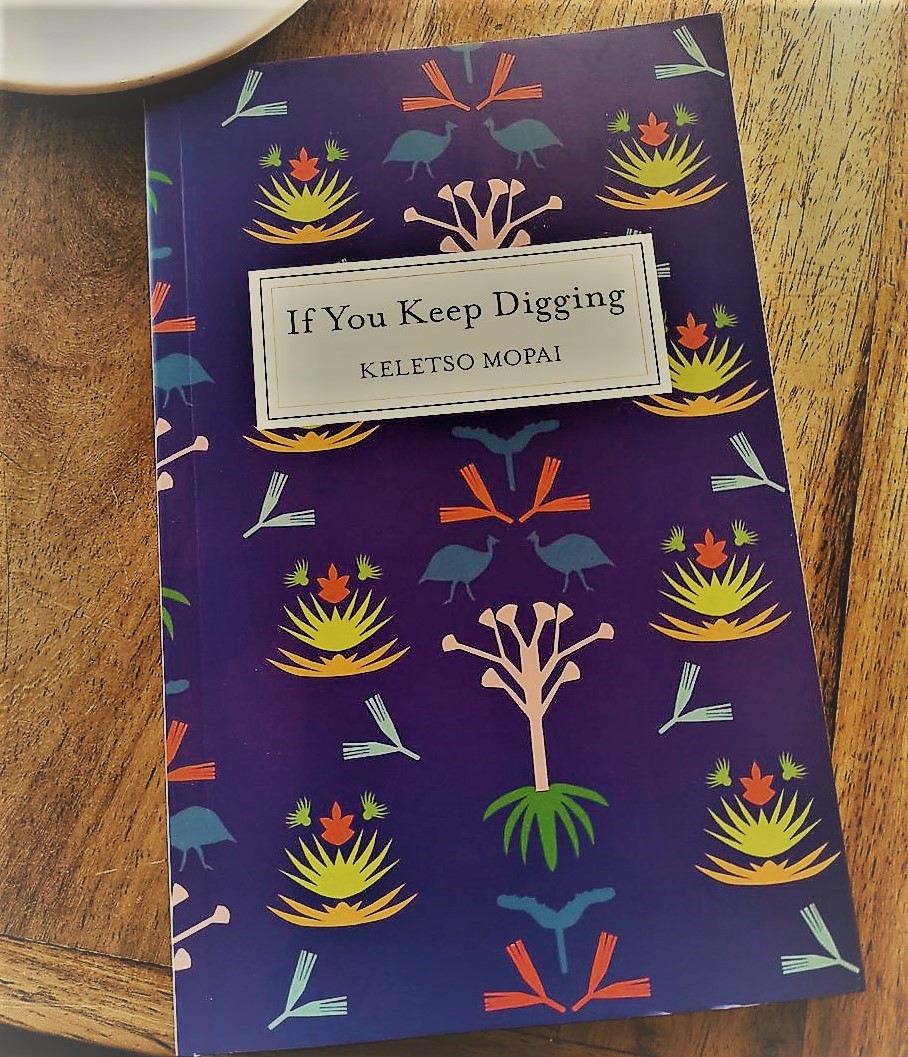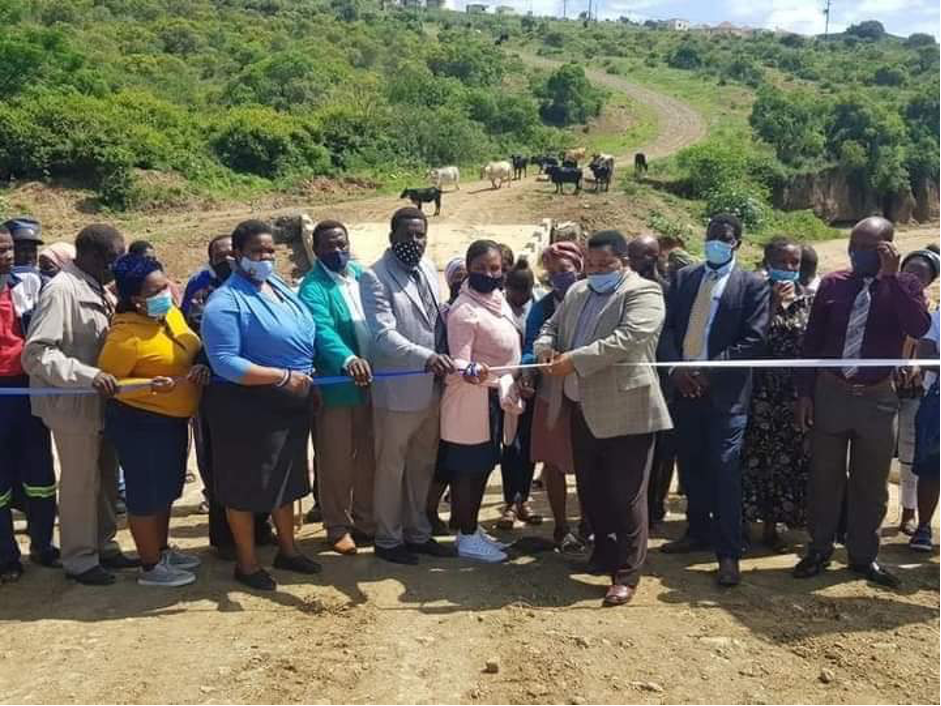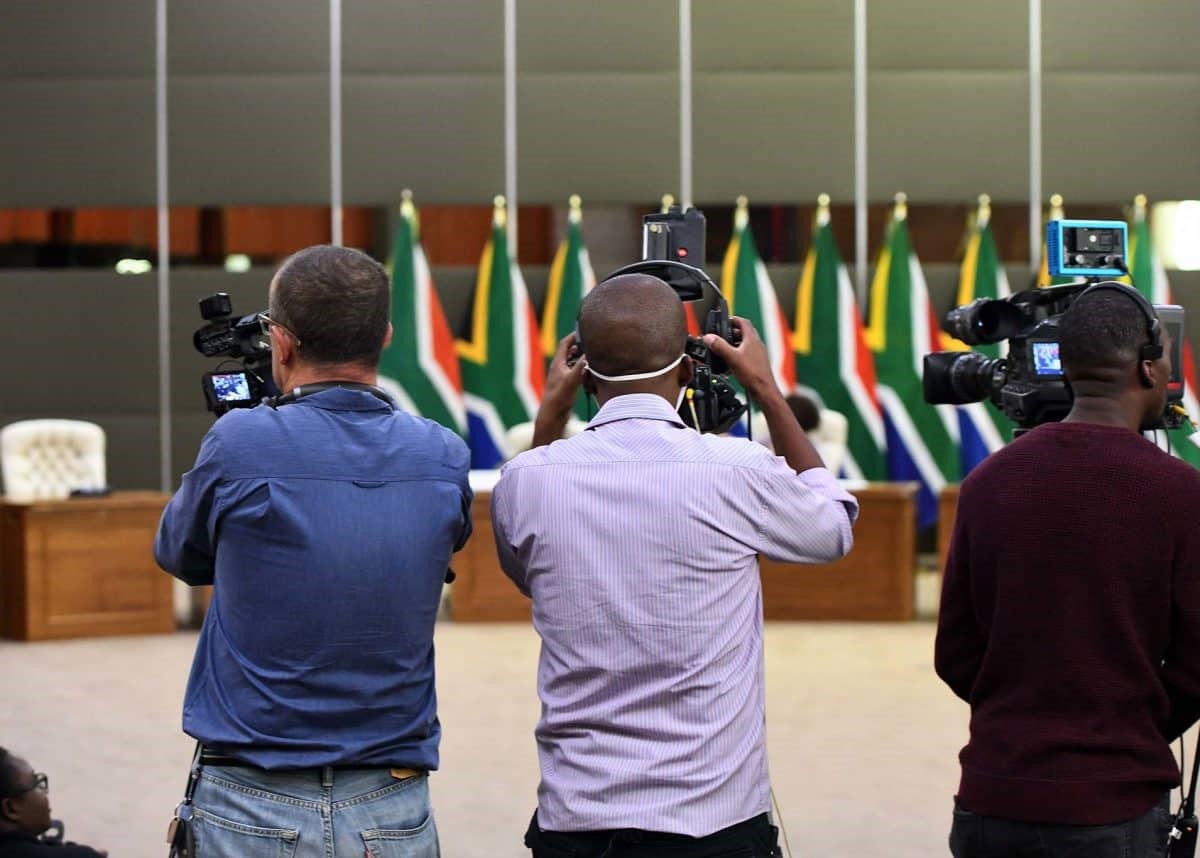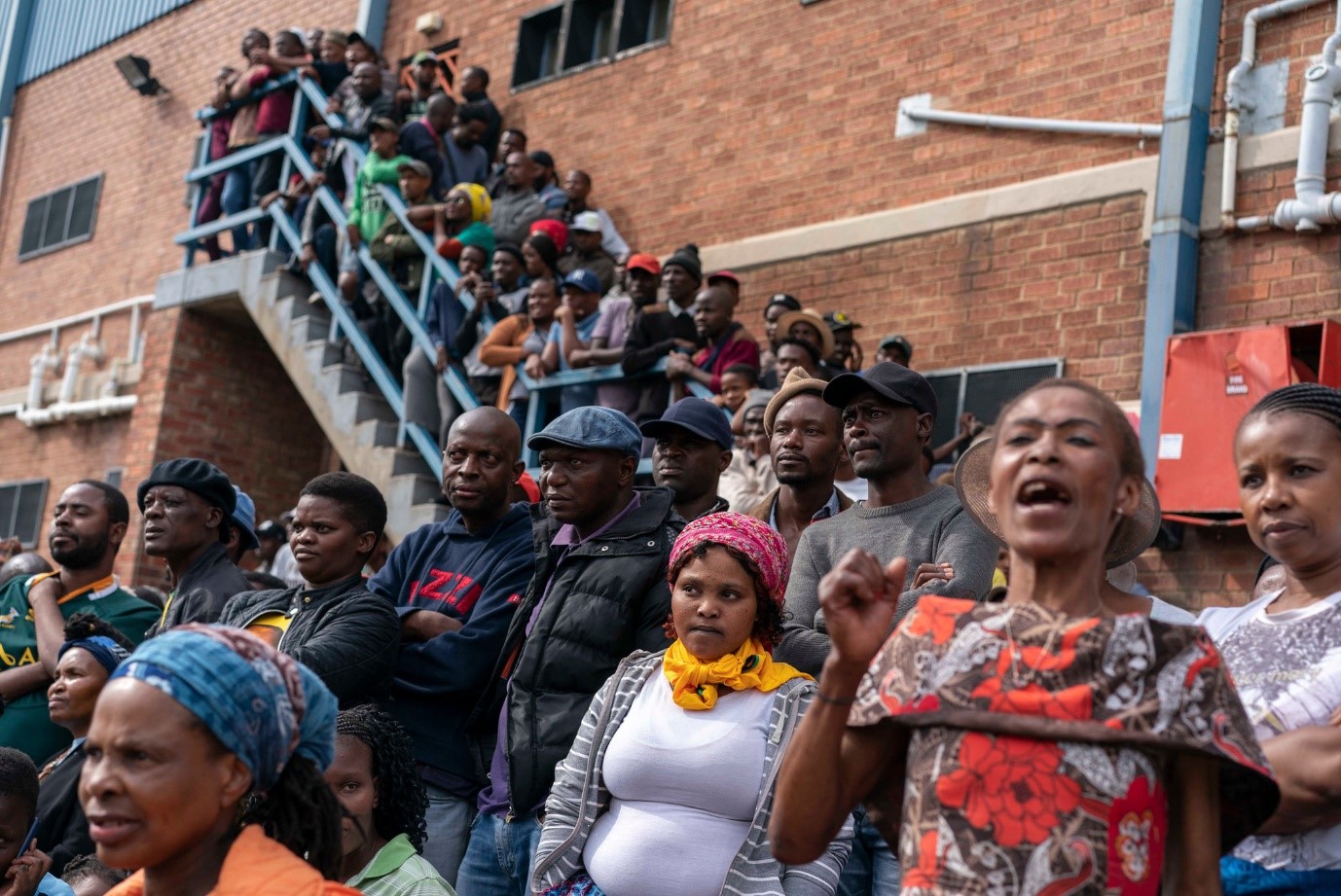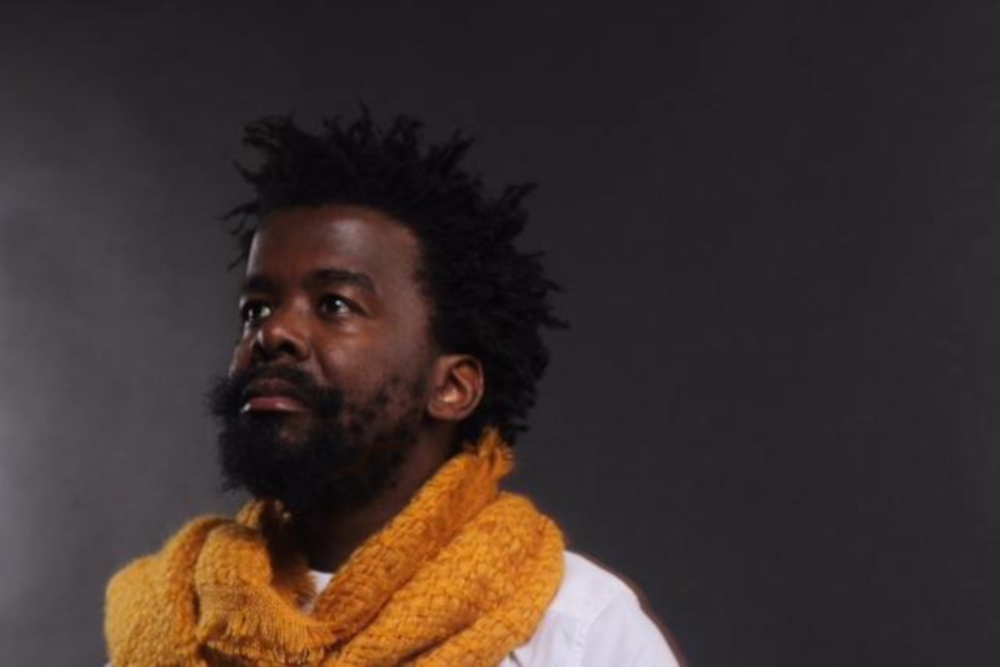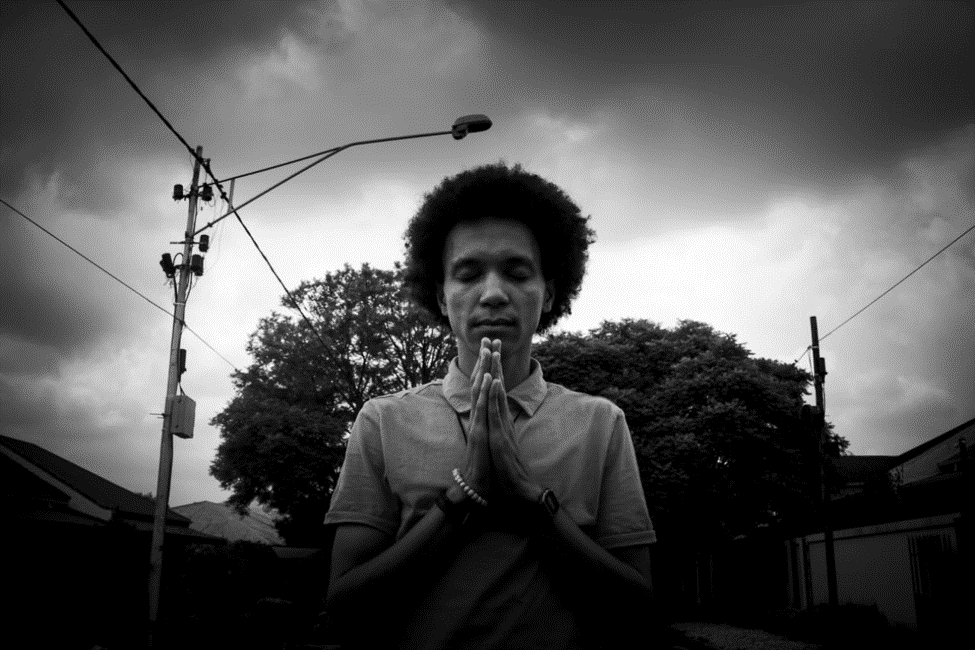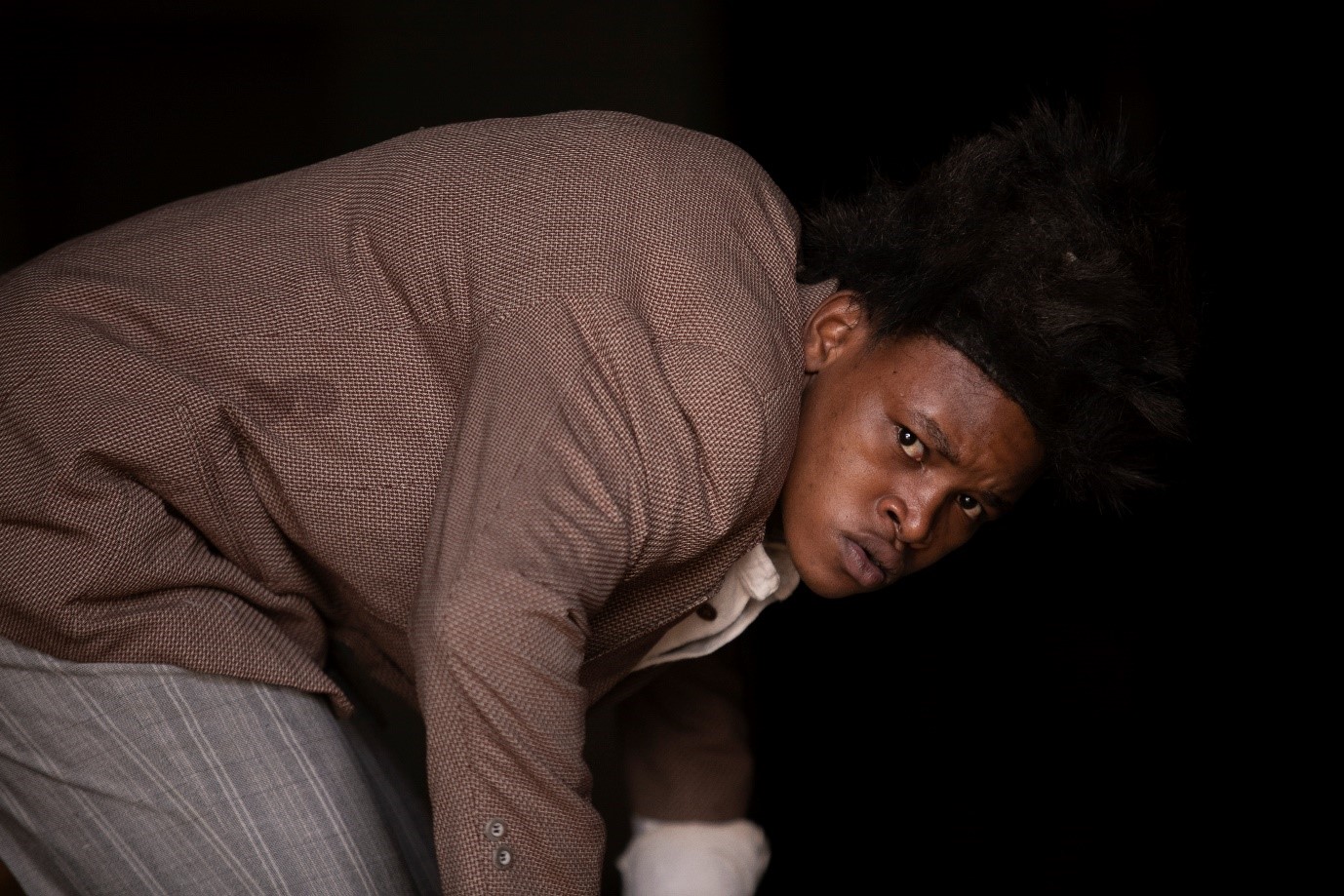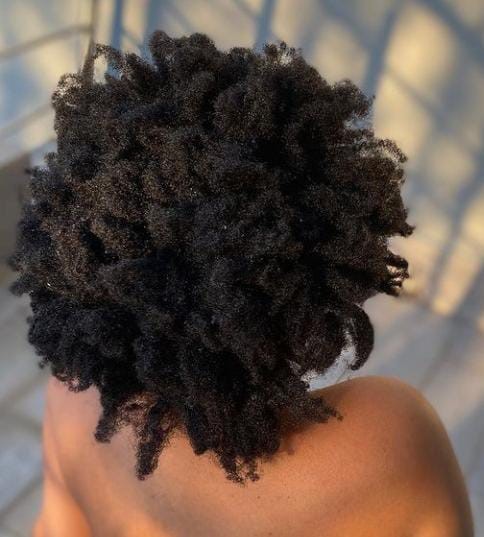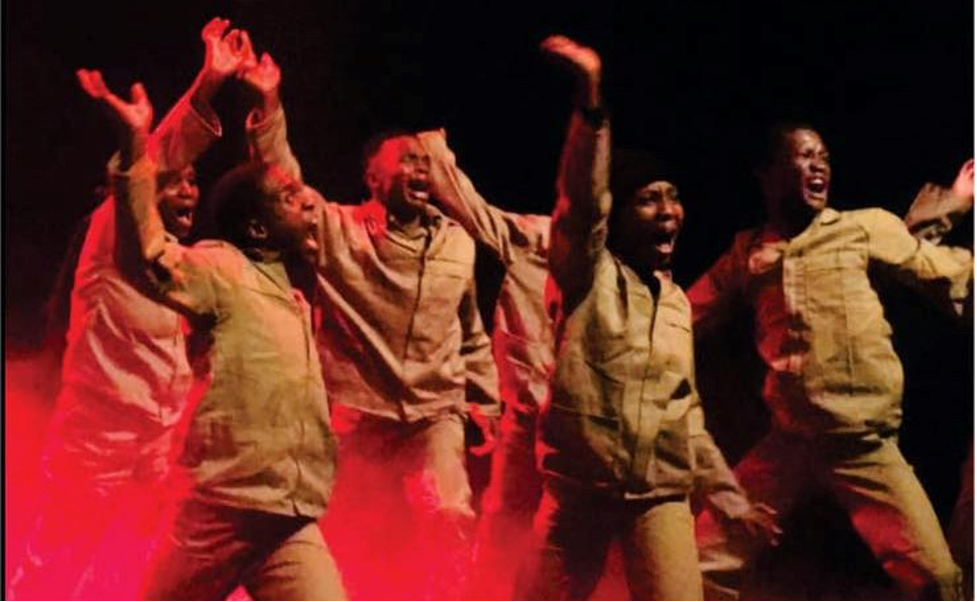Perfect Hlongwane (@_wordperfect) On Keletso Mopai’s (@KeletsoMopai) If You Keep Digging
1.And what if I should begin by telling you that, reading, I have been chuckling, and sniffling, thence to laughing, and weeping? No, I will not do so. That is not how one begins a book review.
2.“Reader, be assured, this narrative is no fiction.” – W.E.B. Du Bois
3.Phaswane Mpe was a small man with big, luminous, deep-set eyes. Within months of becoming my lecturer, at Wits University’s Department of African Literature, he had become my drinking buddy. A less charitable characterisation of the friendship which developed would observe that, although we were age-mates, his being a salaried academic and I a broke student, also meant he was my drinks’ sponsor... He liked to joke about my looping height, and would shed tears of laughter whenever, at his behest, I once again told the story of quitting my job as a soccer magazine editor, to resume my literary studies. When he died, he left behind his novel Welcome To Our Hillbrow to remember him by. I did not read his book with a generous eye. I wanted it to be so much ‘better’ (who knows what I meant or understood by this), and it was only when I attempted to write my own debut novel, no doubt emboldened by, among others, Phaswane’s attempt, that I fully reckoned with the living spectre of Jozi, which grabs you in an unrelenting chokehold when you try to put life in this city into words – words; such fragile things, in the trauma of this place that lures the Black subject come (from afar, promise and bright lights glorious; up close, shrinking possibilities where seekers greatly outnumber opportunities, and the bright lights blind and pierce the soul); and buffets them with blows the instant of their arrival. It was not until the faltering voice of my own fledgling attempt, that I began to see why a narrative voice of the present talking to the past, the dead, imposed itself as Phaswane’s narrator – knowing all, but perhaps too late? Does one ever stop reading a book, so long as it remains in one’s memory? Does the writer ever truly die?
4.03:03 hrs. I am listening to Stimela’s See The World (through the eyes of a child). The four minutes of Nana Coyote’s aching vocals, set against Ray Chikapa Phiri’s plaintive guitar, have been on replay for… Well, I don’t know for how long. On top of the desk before me are two well-thumbed books – If You Keep Digging, the debut short story collection by Keletso Mopai, and Phaswane’s Welcome To Our Hillbrow. I have arrived at the destination of this song on loop via these two texts. Phaswane’s novel because he kept invoking the track again and again, as he charted the tragic trajectories of his characters. Keletso’s book because… Because she did it. She does it. She does see the world through the eyes of a child, through the eyes of many children, or at least, in this bleary-eyed early morn, she has given me, her reader, a child’s eyes – and I am thinking now that perhaps even Phaswane’s deceased protagonist was in some sense a hearkening back to the not-knowing that is a child’s all-knowing... For I have been digging and digging, since I got Keletso’s book, and I have kept digging until I reached the sudden surprise of the realisation that innocence is itself a radical thing, a radical state of being – an unbullshittable lens for looking through the shit, all the shit that life conditions us to experience without recoiling; to remark without horror; to see without surprise. And the tentative grey of a sluggish late-winter’s dawn finds me at this desk still, pondering how the characters of Keletso’s stories, so unworldly-wise, have led to this and many other sleepless nights of philosophical musings and nameless sorrows. Alas, and bless the day, there is no way out left to me, but to carry on digging. Keep digging I will. Oh daughter of Lenyenye, will you carry me, won’t you carry me, where you will? I am grown heavy with cares, but here, at least on this desk, is your brother, this son of Tiragalong, to help you bear the load. I beg of you, you bards, you storytellers of Limpopo both, take, take this nomad heart and carry me whither you will.
5.There are so many existential crises that Keletso’s If You Keep Digging spark within me, but again, these are not of the kind one puts in a review that one wishes to be taken seriously. For instance, how dare a first-time author write with such authority? With such assurance? Who the hell writes a debut book without going out of their way to impress the reader; relying solely on a storytelling that comes so naturally that it has arrived on the scene almost fully formed? And so on, and so I will not say these things. Instead, I will say that the innocence of these stories is the genius of these stories. That what is sometimes only gestured at, in some of these stories, screams louder than much of what is stated explicitly. In short, that the reader will find themselves feeling like putty in the storyteller’s hands, but that the clay will so trust in the mastery, no, the masterfulness of the potter’s craft, that they will give themselves over and live these stories loudly, fully immersed, as they read. See the world through the eyes of a child.
6.What happens to us? What happened to me? What happened to us, to deaden us so? These are not questions that one finds asked, in Keletso’s collection of stories. Not in so many words. They are, however, devastatingly answered. What happened to you? Which deep-seated part of you is like the pregnant teenager in the first story, Madness, labelled promiscuous by her family – who suddenly spots her rapist, the man responsible for violently implanting the thing growing inside her belly, casually chatting away at her brother’s funeral? Could you be that same man, come to mourn with those you have violated and discarded without a care? Perhaps, like Nicolas in the second story, Monkeys, you live with the knowledge of a love that is already marked out as wrong before it can even fully know itself – that dares not speak its name, even before its time to speak has come? Or perhaps you are the unintelligible grief of our boy Nicolas’s mother, hapless victim of violent matrimonial abuse, apologising to her son for the sins of his father? Could pieces of you be Aureole, in Baba’s Jwansburg, mixed-race village-bumpkin-turned-city-kid, caught in a complex web of her own seemingly simultaneous worthlessness and privilege? Are there little bits of these characters that have grown with you, grown in you? Grown to be you? As for me, I don’t know, and as for you, I suggest, should you take the time to read, you will allow Keletso’s pen, restrained with a fury that positively pulses in the taut sentences, make you start digging. That you will keep digging.
7.“… I mean, I am a Black girl … What am I supposed to look like (p63)?” Hair Tales. Njabulo Ndebele spoke, so long ago, perhaps anticipating impending triumphs, and spaces opening up to receive us in all our complexity, of rediscovering the ordinary – but who knew that this rediscovery would also be characterised by the hair-raising spectacle of our own unrelenting exile at home? “Dear Miss Molomo, Please, this is the last letter I am writing regarding your daughter’s hair. I suggest that you cut it or relax it. It is untidy and unkempt. This is against the school’s hygiene policy – Mrs van der Walt (p60)” How are such things possible? How is the ordinary, the daily, the humdrum, itself so chained up in the spectacle of our unending torment? Elsewhere, Lehlohonolo Peega, writing about the ever-present spectre of displacement and ‘exile at home’ in the work of our jazz prophetess Thandi Ntuli, is forced into the headshaking realisations that, “Something is not quite right. Something is not quite right with this situation. Something is not quite right with this democracy…” Indeed, this country at large ought not to feel like Dr Goosen’s posh offices in Hair Tales, where a Zodwa inevitably becomes a Zoe, and a Lisakhanya is instantly baptised a Liza – before she can even set foot in the interview room... This land of our forefathers, this society whose redemption is washed with the rivers of our blood, ought to be holding us with something akin to an embrace – ought to be redefining space – not sending us letters of regret, having frowned at our dreadlocks… It is undeniable. Something is not quite right.
8.“If you were still alive, Refentse, child of Tiragalong…” Thus begins the story, told by the living to those who are beyond the grave, of Phaswane’s Welcome To Our Hillbrow. A narrative voice for the living dead, for meditations where the ghosts of pervasive death and dying colour the visions of those who still, in the meantime, have breath to tell the tale. “In the meantime,” begins the telling incantation of Mgarimbe’s Sister Bethina, our groove anthem for the decades past – marking out the days of the still-present as the interregnum in which, not only is living that space between birth and death, but it is also a constant knowing that the end is likely to come sooner rather than later. One might fill the days with work, or one might exercise them in a desperate dance to say that, ‘I, too, have lived’ – but the heavy sense of the odds being stacked against a long-term stay stalks the limits of possibility. The majority is in the margins, no matter how loud the shouts, how agile the gyrations – never mind how determined the resolve to live purposefully. But let us retrace our steps, and see what echoes we might find in Keletso’s If You Keep Digging. In the story Fourteen, here is how we meet Simphiwe, twenty-eight years old, working at a neighbouring mine: “Simphiwe, you have been dead for two days and eleven hours (p129)”. It would seem that this fellow, the grim reaper, is very much alive in the telling of the tales of this people, negotiating the spaces of their urban, industrial borders – wherein they provide their much-needed but poorly-valued labour. The tragic, fleeting character of Gidza, a kombi tout in Petina Gappah’s short story Copacabana, Copacabana, Copacabana, from her collection bearing the title Rotten Row, immediately comes to mind. There, we are told from the get-go, “Gidza will die in exactly forty-five minutes and thirteen seconds”. Later on in the story, we discover that Gidza will die from the ‘justice’ meted out by a mob; suspected of having pickpocketed a commuter of a cell phone. But even that is just one of the many deaths available to this minibus taxi conductor, in a field rich with possibilities – we are told early-on, and matter-of-factly, that, for this kombi tout, and for the driver of the vehicle, and for their passengers throughout the day, every day, “Their kombi is a death trap”. Likewise, Simphiwe in Keletso’s Fourteen is employed in a death trap, aka a mine. No surprise, then – it is a rock-fall underground, where he works to dig for a wealth that rewards him with an almost-survival, that kills him. If you keep digging, dear reader, you will find that these are the stories of too many. These are the bare facts of their lives. Little wonder, then, that Keletso’s unflinching pen would write Simphiwe’s bloody end as something of a release – respite from the rigours of a life fraught with struggle, where precarity obtains in the mere fact of ‘being’.
9.When Freshlyground’s Zolani sings, you know it’s Zolani. You know that voice, and that voice is so distinctive as to communicate a certain mood, a certain colour of innocence and wonder, somewhat independent of whatever the lyrics might say. There are stories, in Keletso’s collection, where one feels that the power of understatement, the narrative discipline of a tightly-controlled fury, are slipping away. In the stories Letty, in Skinned, and in Professor Banda – the tight rein on a highly effective, suggestive restraint relaxes a little, and the reader steps back… pondering why sermon is creeping in, when story was doing so well? These instances do not jar as pointedly as they could, however, because the authenticity of the storyteller’s voice is steady as steel. A huge part of this authenticity lies in this: Keletso is uncompromising about who she writes her stories for. It is a confidence and simplicity of tone that reels you in, effortlessly, as if to say ¬– these stories will not bend to your ability (or lack thereof) to stomach them; these tales perform no theatrics to impress you into listening. An immense beauty in the writing, this – this sure and unwavering conviction in the intrinsic value of the telling of the tale.
10.Have you ever walked a tar road over a long distance, in sweltering heat? Perhaps on your way to, or from, school? Or work? It matters not, whether you have or you haven’t, because, in Becoming Gods, the love between Mmadjadji and Bontle – frowned upon by society, forbidden, taboo – does not seek your approval in order to be. The two women “became like moist gum stuck between a shoe and tar” – and that indelible image, that oneness, is the reality of their love. And there isn’t a damn thing you can do about it. The power is in the writing for a gaze that is one’s own, true to the telling; not preoccupied with what any other gaze – compassionate, prying, looking on in judgment – might expect or demand. There are no eloquent, clever or informative defences for narrating Mmadjadji’s cruel bewitchment and miraculous recovery. Reader, there is no pandering to the White gaze here. There is no idealisation of the Black subject. In Growing Carterpillars, inwardly we weep for the conflicted, closeted Thuso, even as we loathe him for his poor treatment of his girlfriend, Keke. In Letty, we must see that the targets of our moral censure are often merely the victims of us knowing only parts of a story... There are no blanket absolutions, where the villains cannot also be the victims.
11.Tsakane, in Blood and Filth, is Tsietsi’s over-protective brother – the sibling who singlehandedly raises her when they are too-soon orphaned. He is also a violent rapist who Tsietsi must see for what he is, no matter how much he may have sacrificed to raise her. Indeed, if you keep digging, you will find that these stories never doubt the humanity of their subjects. Flawed, longsuffering, resilient, weak, strong, damned, defiant – Keletso writes the condition of her people, our people, in all its raw, resplendent, tragic, triumphant complexity. Because, if you keep digging, you may find that the beauty of the well-told story is itself a triumphing over the odds.

